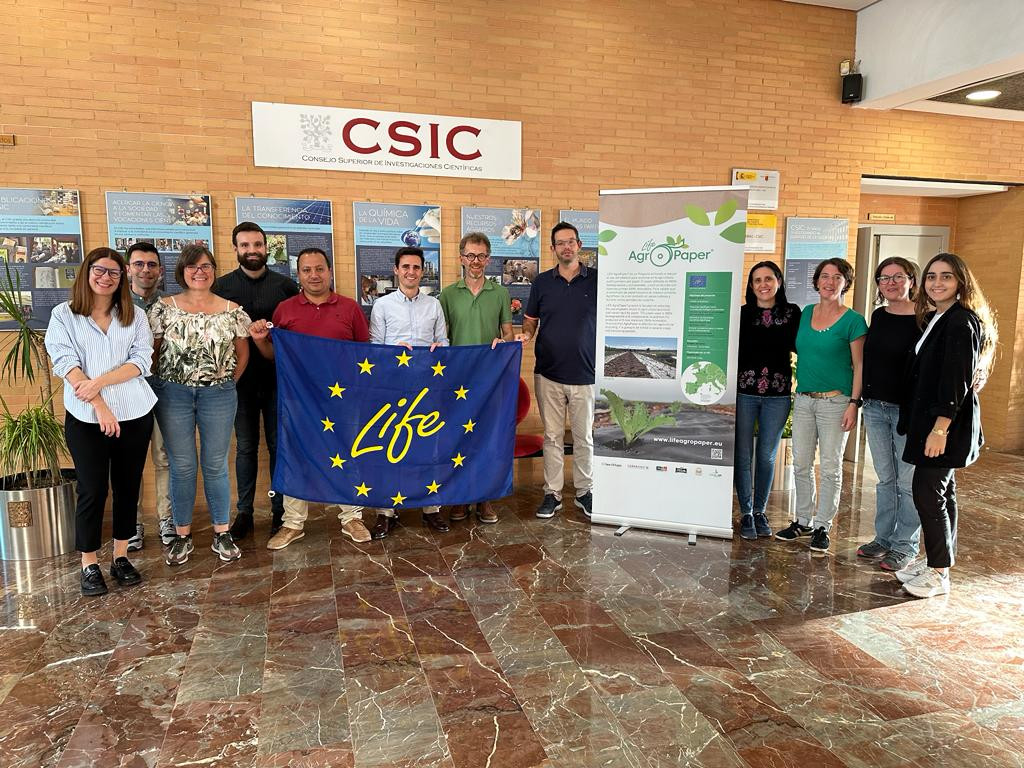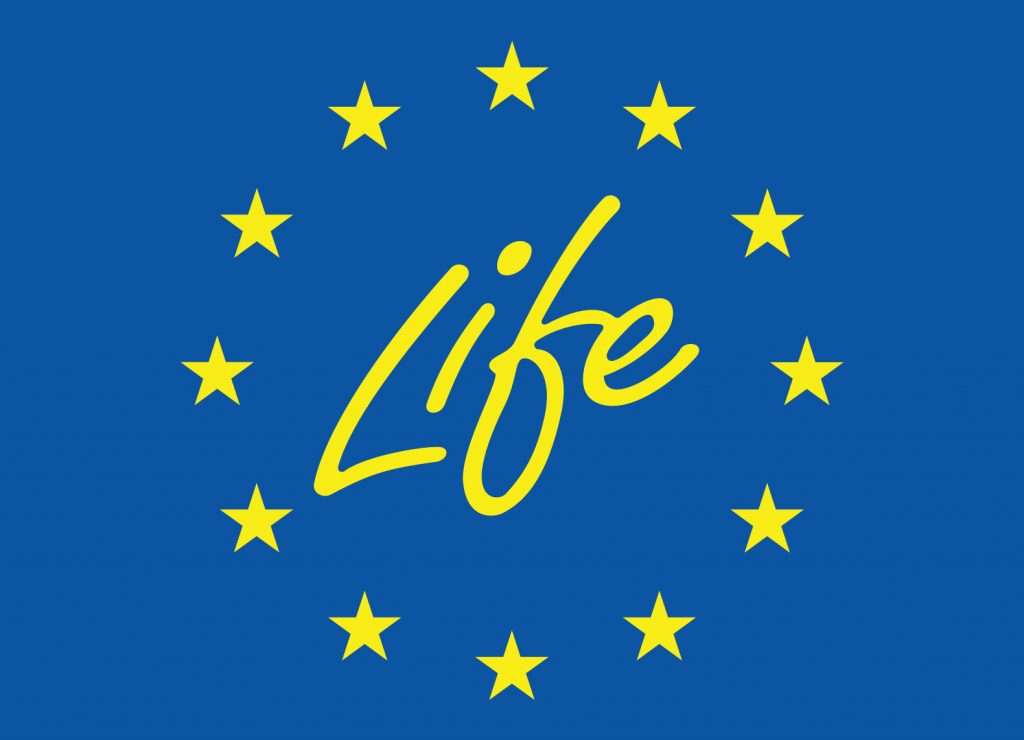The Consortium of the European LIFE AgroPaper® project is preparing the presentation of the results after 4 years of trials, demonstrations and analysis on the feasibility of replacing plastic mulch with AgroPaper®, the biodegradable and compostable paper mulch.
The partners’ meeting will be held in Murcia, Spain, on October 25 and 26.

The European project LIFE AgroPaper® was born at the end of 2019 with the aim of demonstrating that paper mulching is effective for agricultural cultivation, replacing the use of plastic with this material made from pine fiber, biodegradable and compostable. Smurfit Kappa, as the creator of this innovative material, is the hand of the Consortium of associated entities that have developed this project: Grupo AN, Floreale Holding, Florette Ibérica, the Centro de Edafología y Biología Aplicada del Segura (CEBAS – CSIC) and the Sociedad Española de Agricultura Ecológica y Agroecología (SEAE).
In order to achieve the substitution of plastic for agricultural paper, LIFE AgroPaper® has carried out 18 large-scale demonstrations over the last 4 years, in order to assess whether they can be replicated in Europe. For this purpose, 5 of the most important crops (lettuce, tomato, bell pepper, corn and artichoke) have been selected in 4 locations with different climatology: Murcia (Southern Spain), Navarra (Northern Spain), Normandy and Burgundy (Northern France) to be representative of the Mediterranean and Central European regions where almost all vegetables are grown in Europe. The 18 large-scale demonstrations represent a total of 15.4 ha of agricultural mulch (TRL7-TRL9).
Sustainable and biodegradable solution for mulching technology
In order to demonstrate that paper mulching is an environmentally sustainable solution and, at the same time, valid for agricultural use, the LIFE AgroPaper® project has been structured in 5 pillars that ensure the scientific and technical feasibility of this material.
To this end, a systematized mulch production process has been followed, with detailed protocols for each type of sheet (weights, widths, colors…) and protocolized tests have been carried out both in the field and in the laboratory, together with the analysis of the characteristics of the paper, its impact on soil fertility, carbon content, organic matter and biological activity.
Another important part of the project focuses on the dialogue with farmers, technicians and researchers who have tested AgroPaper® in their greenhouses or farms in order to identify what can be improved.
After this final evaluation of the results, the 6 partners of the LIFE AgroPaper® Consortium will disseminate the results obtained at European and international level, since there is the possibility of replicating and transferring the results of the use of AgroPaper® to other contexts, regions and farmers who pursue the same purpose, abandoning plastic mulch for paper mulch. As the LIFE AgroPaper® Consortium points out, this will “contribute to conservation efforts by avoiding the use of single-use plastic mulch and the release of plastic particles and microplastics into the soil and environment, using practices, methodologies and actions already successfully implemented in this project.”
The development of this European project – Towards to zero plastic soil management agricultural practices – LIFE AgroPaper® (LIFE 19 ENV/ES/000404) – is possible thanks to the financial support of the European Union’s LIFE program.
More information on the tasks performed by each entity can be found at https://www.lifeagropaper.eu/socios

